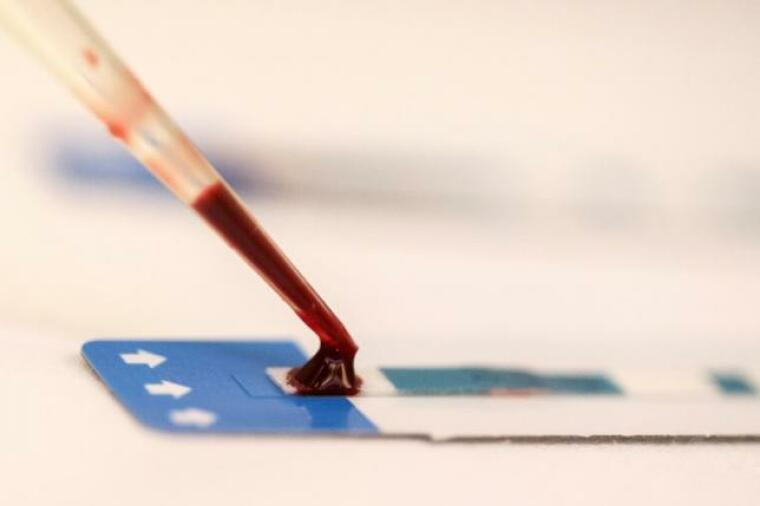AIDS cure 2016 latest news: Durban delegates excited at possible cure
Scientists might finally find a cure or at least a way to circumvent HIV/AIDS, according to the recently held AIDS Conference in Durban, South Africa.
According to New Vision, the pre-conference symposium "Towards an HIV cure research" stirred excitement among the thousands in attendance, including scientists, HIV/AIDS activists, advocates, journalists and well-known personalities.

The delegates discussed about two types of cure, as presented by Dr. Anthony Fauci of the National Institute of Allergy and Infectious Diseases (NIAID). The first type, known as "sterilizing" cure, would completely remove the virus. On the other hand, the second type, known as "functional" cure, would bring the virus into what scientists referred to as "remission," a condition similar to the type associated with cancer.
Prof. Sharon Lewin of The Doherty Institute at the University of Melbourne in Australia also said they're currently looking into at least four types of cure strategies, such as "shock and kill," gene editing, stem cell transplants and therapeutic vaccines.
"We're trying to mess with the immune system in a way old vaccinologists never thought of," said immunologist Dr. Nicole Frahm, as reported by Fred Hutch News Service.
Dr. Nyaradzo Mgodi, who chaired a clinical trial in Africa, also lent her voice to provide hope in finding the solution.
"We will move HIV vaccine research forward, and we will have an HIV vaccine," said Mgodi, who's also part of the University of Zimbabwe–University of California San Francisco Collaborative Research Programme in Harare, Zimbabwe.
According to Hutch News, some of the successes presented during the conference included the fact that antiretroviral therapy became accessible to 17 million people worldwide and helped 85 countries fight the risk of HIV transmission through childbirth and breastfeeding.
However, the disease still strikes nearly two million people every year with two-thirds occurring in Sub-Saharan Africa.
"Young African women remain the face of HIV on this continent," declared Dr. Elizabeth Bukusi of the Kenyan Medical Research Institute.
Advocates also urged that the search for the cure should not leave those marginalized and stigmatized behind.
"We are called key because we face so many locked doors," said Michael Ighodaro, a Nigerian gay activist.
The week-long 21st International Aids Conference held at the International Convention Centre in Durban started July 18 and ended Friday, July 22.
 Christians don't have to affirm transgenderism, but they can’t express that view at work: tribunal
Christians don't have to affirm transgenderism, but they can’t express that view at work: tribunal Archaeology discovery: Medieval Christian prayer beads found on Holy Island
Archaeology discovery: Medieval Christian prayer beads found on Holy Island Presbyterian Church in America votes to leave National Association of Evangelicals
Presbyterian Church in America votes to leave National Association of Evangelicals Over 50 killed in 'vile and satanic' attack at Nigerian church on Pentecost Sunday
Over 50 killed in 'vile and satanic' attack at Nigerian church on Pentecost Sunday Ukrainian Orthodox Church severs ties with Moscow over Patriarch Kirill's support for Putin's war
Ukrainian Orthodox Church severs ties with Moscow over Patriarch Kirill's support for Putin's war Islamic State kills 20 Nigerian Christians as revenge for US airstrike
Islamic State kills 20 Nigerian Christians as revenge for US airstrike Man who served 33 years in prison for murder leads inmates to Christ
Man who served 33 years in prison for murder leads inmates to Christ


 Nigerian student beaten to death, body burned over ‘blasphemous’ WhatsApp message
Nigerian student beaten to death, body burned over ‘blasphemous’ WhatsApp message 'A new low': World reacts after Hong Kong arrests 90-year-old Cardinal Joseph Zen
'A new low': World reacts after Hong Kong arrests 90-year-old Cardinal Joseph Zen Iran sentences Christian man to 10 years in prison for hosting house church worship gathering
Iran sentences Christian man to 10 years in prison for hosting house church worship gathering French Guyana: Pastor shot dead, church set on fire after meeting delegation of Evangelicals
French Guyana: Pastor shot dead, church set on fire after meeting delegation of Evangelicals ‘Talking Jesus’ report finds only 6% of UK adults identify as practicing Christians
‘Talking Jesus’ report finds only 6% of UK adults identify as practicing Christians Mission Eurasia ministry center blown up in Ukraine, hundreds of Bibles destroyed: 'God will provide'
Mission Eurasia ministry center blown up in Ukraine, hundreds of Bibles destroyed: 'God will provide' Church holds service for first time after ISIS desecrated it 8 years ago
Church holds service for first time after ISIS desecrated it 8 years ago Burger King apologizes for 'offensive campaign' using Jesus' words at the Last Supper
Burger King apologizes for 'offensive campaign' using Jesus' words at the Last Supper Uganda: Muslims abduct teacher, burn him inside mosque for praying in Christ’s name
Uganda: Muslims abduct teacher, burn him inside mosque for praying in Christ’s name